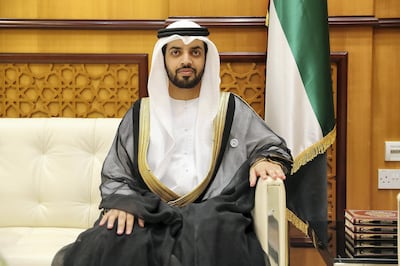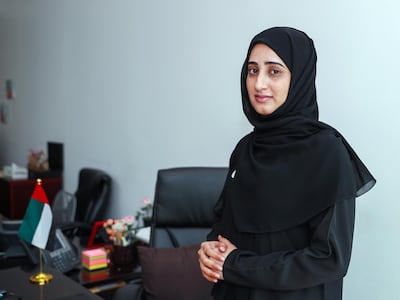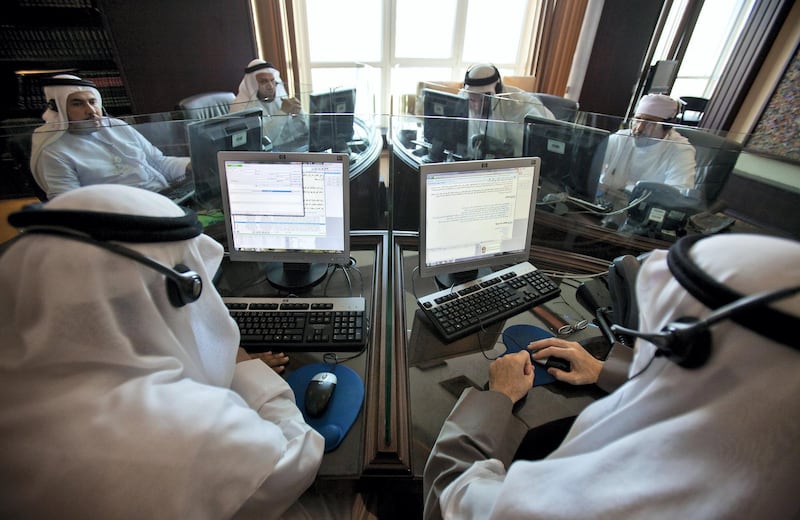The UAE's new religious council will tackle the "crisis of fatwa" facing the Muslim world by providing clarity and a tolerant voice of authority, its members said.
The Emirates Council for Fatwas was formed by the UAE Cabinet on Sunday. The Islamic scholars who make up the council are responsible for issuing rulings for the millions of Muslims in the country.
Council members told The National that among the first acts will be to make it religiously forbidden to discriminate against others based on religion or creed, a follow-up to the 2015 law issued by President Sheikh Khalifa.
Under the chairmanship of Sheikh Abdullah bin Bayyah, chairman of the Forum for Promoting Peace in Muslim Societies and vice-president of the International Union of Muslim Scholars in Mauritania, the council will regulate religious fatwas issued in the UAE.
Currently fatwas are issued by the Fatwa Department at the General Authority of Islamic Affairs and Endowments. Muftis answer queries related to worship and creed, social relations, business transactions, family relations, and women’s issues. They receive more than 1,000 calls daily – a number that triples during Ramadan.
However, the new council's role is different, said Sheikh Omar Al Darei, member of the council and director of the Fatwa Department at Awqaf.

“Our department will remain as the authority to respond to these questions,” he said.
The council, he said, will be the umbrella authority under which all national fatwas fall. The council will be concerned with responding and issuing fatwas that concern the general public – mainly related to government and business issues rather than personal or social.
Previously, there was no such authority in the UAE, rather only a committee under the authority that responded to the religious questions of institutions. This responsibility will now fall to the council.
“Fatwas concerned with organ donations, medical practices, charity and others that concern general public,” said Sheikh Al Darei. “Also fatwas that reflects the country’s position on modern issues to avoid confusion.”
Sheikh Al Darei said the UAE was one the first countries to issue an anti-discrimination law, criminalising all forms of discrimination on the grounds of religion, caste, creed, doctrine, race, colour or ethnic origin.
“The council will confront such abuses and sectarian intolerance by releasing official religious opinions on these matters and forbid discrimination,” he said.
The council will be responsible for furthering that message in a religious capacity and to represent the UAE’s tolerant approach to Islam.
Currently the UAE’s religious representation is managed by Awqaf - a moderate and tolerant institution, said Sheikh Al Darei.
_______________
Read more:
Some fatwas are dangerous... and some are ridiculous, says renowned Muslim scholar Hamza Yusuf
UAE Cabinet forms Emirates Fatwa Council
Religious leaders meet in Abu Dhabi to discuss challenges faced by Muslim minority communities
Abu Dhabi congress to tackle disenfranchisement of Muslim minorities
_______________
"The UAE religious message is always one of tolerance.
“The Authority and their preachers and publications and all its sectors and institutions have all been fixed by the leadership because the principles are those of tolerance, respect, forgiveness and mercy.
“In this country people of all religions pray side by side. The mosque is next to the church and there is no place for extremists and intolerance,” he said
Another goal of the council is to unify the fatwa, Sheikh Al Darei said, adding that extremists have tried to use fatwas as a way to cause disruption.
“An authorised fatwa centre that represents the UAE is crucial,” he said.
Dr Mohammad Al Kaabi, chairman of the Abu Dhabi’s General Authority of Islamic Affairs and Endowments, said a unified council would prevent unauthorised rulings from being issued.
“Unifying and regulating fatwa practices in the UAE will prevent personal or improvised fatwas and rebut extremist and terrorist fatwas, in keeping with the leading role played by the UAE in combating terrorism and radicalisation,” he said.
The council members are Islamic scholars from across the UAE and indeed the world.

Shamma Al Dhaheri, 30, is the only Emirati woman and one of only two women on the council, the other being Prof Amany Burhanuddin, head of the Indonesian Council of Scholars for Women and Youth.
Ms Al Dhaheri was one of the first batch of seven Emirati high school pupils selected to study in Morocco, when she enrolled at the Mohammed V University in 2006.
Now in the third year of her PhD, she found out she had been made a council member only a few days before the announcement. “It is a big responsibility and a huge addition to knowledge and experience to anyone in the field. I am very grateful and proud to have been chosen.”
Ms Al Dhaheri, who is also head of the preaching section at Awqaf, believes errant use of social media by extremists is a serious threat to modern Islam and hopes that the council will help to regulate and monitor people who issue misleading fatwas deemed contrary to the UAE's moderate approach. "Social media is an open field and there are many individuals who use it to attempt to disrupt our security and give false information about Islam.
“We hope the council will introduce mechanisms and regulations that will stop unauthorised individuals from giving out misleading fatwas through social media.”






